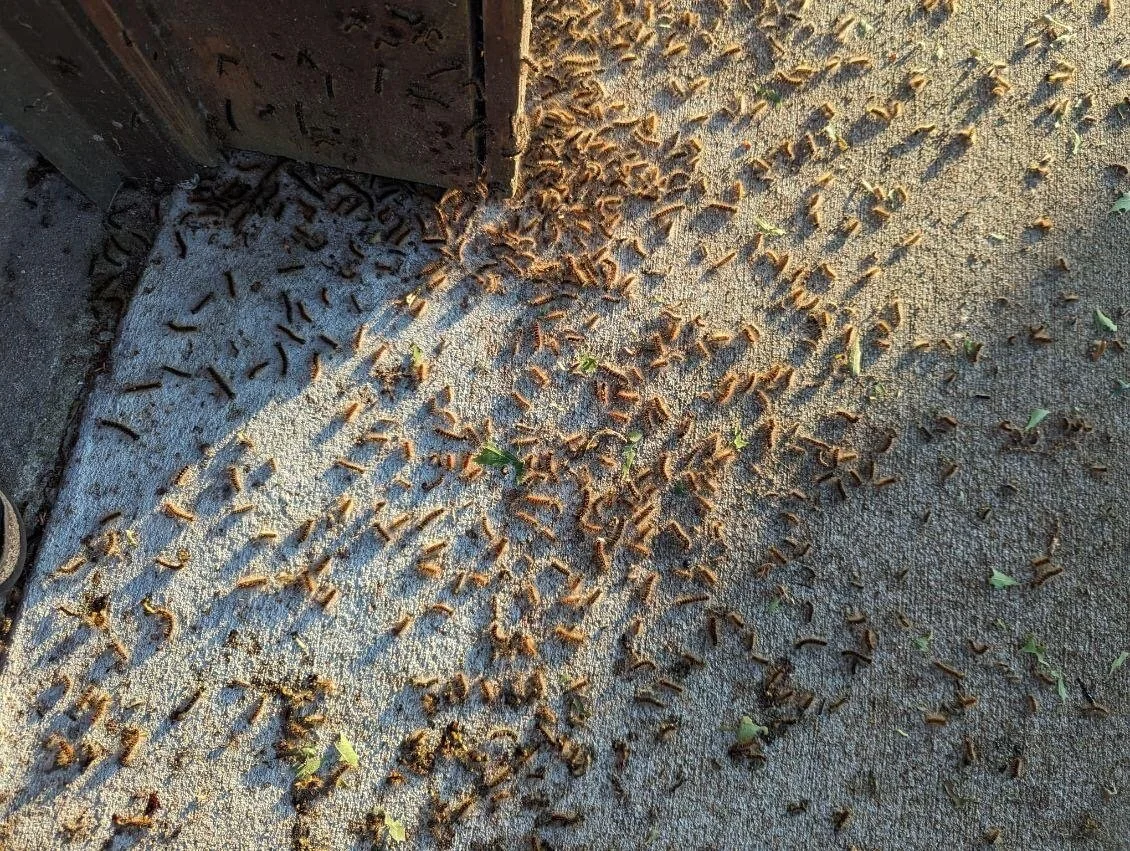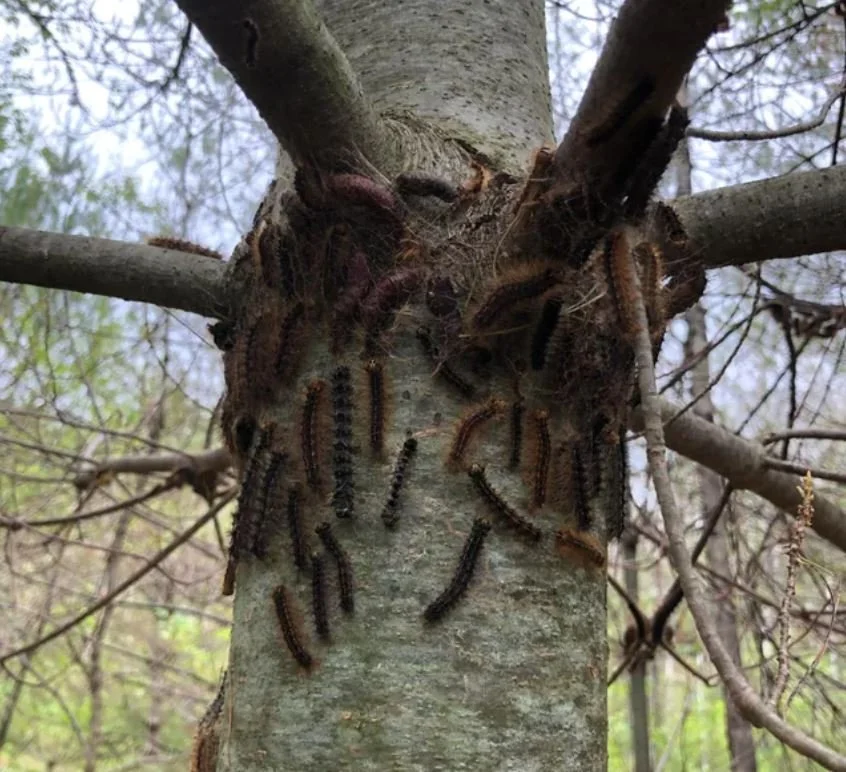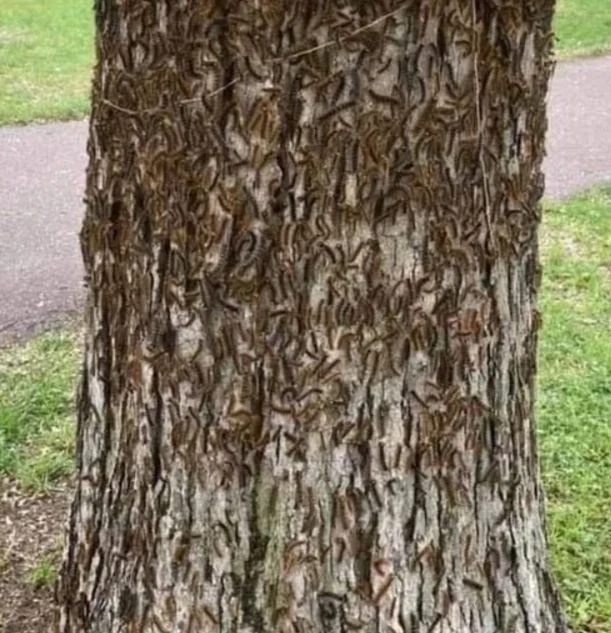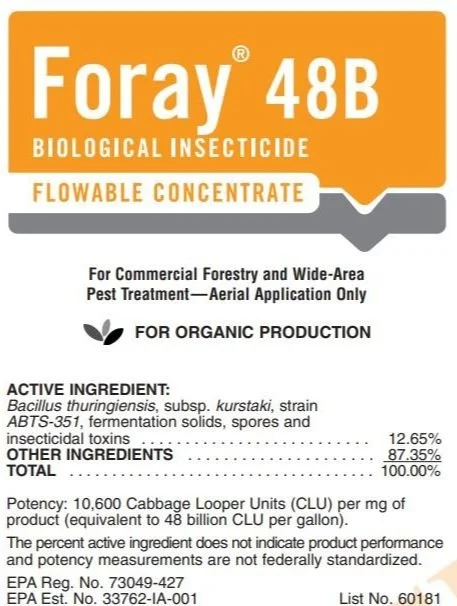
The larvae is capable of defoliating entire forests in just weeks, leaving a wake of bare trees and staining everything underneath with dark frass (insect feces). Most trees can survive a single defoliation, however they are more susceptible to disease and will likely die after repeated defoliations when left untreated.
The larvae is capable of defoliating entire forests in just weeks, leaving a wake of bare trees and staining everything underneath with dark frass (insect feces). Most trees can survive a single defoliation, however they are more susceptible to disease and will likely die after repeated defoliations when left untreated.
What is a Spongy Moth?
A Spongy Moth (formerly Gypsy Moth) is an invasive species of moth whose larvae has immense destructive potential. This caterpillar primarily targets Oak trees, but will also defoliate Aspen, Birch, Willow, Pine, Fir, and Spruce.
Treatment Process
The process to prevent or stop a spongy moth infestation is very simple. We use an airplane to apply a product called Foray 48B at a rate of 1/2 gallons per acre. Foray 48B is in organic biological insecticide which uses a naturally occurring soil bacteria (Bacillus Thuringiensis, or BTk) as an active ingredient. After being applied over the forest canopy, the caterpillars eat the treated leaves and die soon after because the bacteria cause the caterpillar’s gut to rupture.
Using an airplane is the fastest and most efficient way to treat these pests. The application window is about 2 weeks in late May. Applications are typically in the morning while relative humidity is high and winds are low to ensure an effective application. The timing of the application is crucial, so it’s important that you schedule it prior to even seeing the caterpillars. If you had a bad infestation this year, you will have another bad one next year.
FAQs
Does BTk affect non-target species such as bees?
No, being a biological insecticide, BTk is extremely selective in the species it affects. Numerous studies and decades of use have shown that it does not harm fish, mammals, birds, pollinators, or other non-target species.
Is BTk safe for humans?
The EPA has conducted countless studies concerning the potential risks of BTk. Of all the studies in its over 40 years of use, there has been no evidence of poisonous, toxic, or disease-causing effects from significant quantities of BTk being ingested or inhaled. The EPA has also deemed Foray to be exempt from residue tolerance which means there is no re-entry interval after an application is made.
Is Foray 48B Certified Organic?
Yes! Foray 48B is USDA Certified Organic and is made from a concentrated soil bacteria which is already present in the dirt beneath your feet.
Additional Resources
Foray 48B Product Information
https://www.valentbiosciences.com/foresthealth/products/foray/48b/
https://www.valentbiosciences.com/foresthealth/wp-content/uploads/sites/5/2017/03/foray-slim-jim.pdf
Reddit Testimonials to Spongy Moth Damage
https://www.reddit.com/r/upstate_new_york/comments/13fwilv/spongy_moth_caterpillar_are_my_oaks_okay/
https://www.reddit.com/r/Michigan/comments/o0u1x5/forget_the_17_year_cicadascan_we_talk_about_the/
Government and University Resources
https://www.michigan.gov/invasives/id-report/insects/spongy-moth
https://www.canr.msu.edu/resources/dealing-with-spongy-moth-around-your-home-or-property
https://www.canr.msu.edu/ipm/Invasive_species/gypsy-moth/index
Spongy Moth Spraying Gypsy Moth Spraying Crop Dusting West Michigan Spongy Moth Spraying West Michigan Spongy Moth Spraying Michigan Gypsy Moth Spraying Michigan Gypsy Moth Exterminator Spongy Moth Exterminator Spray Gypsy Moth





